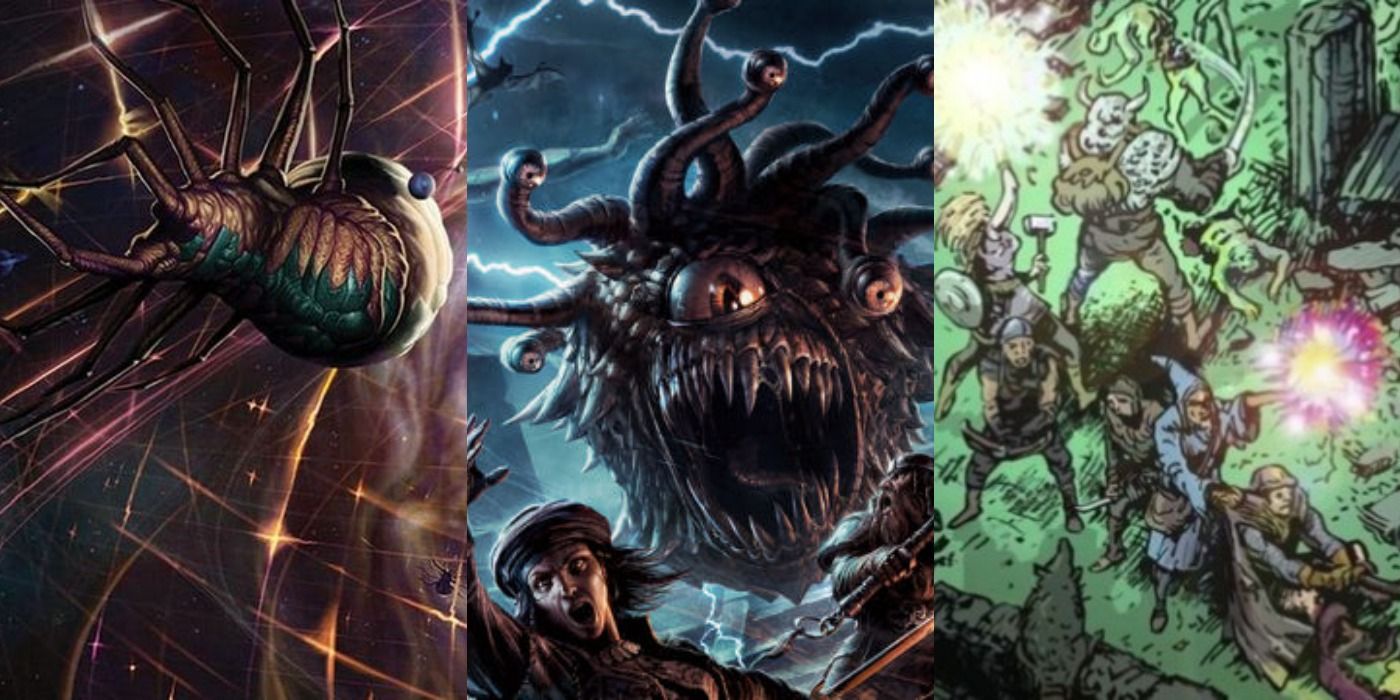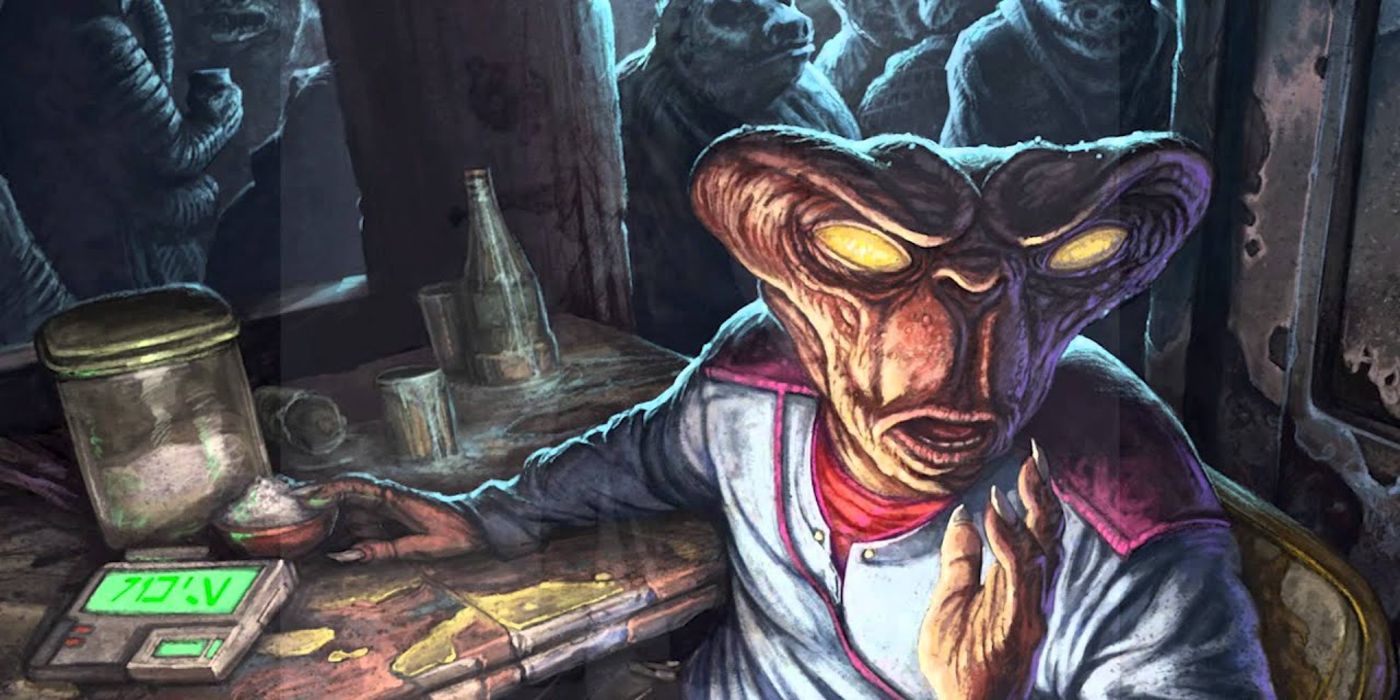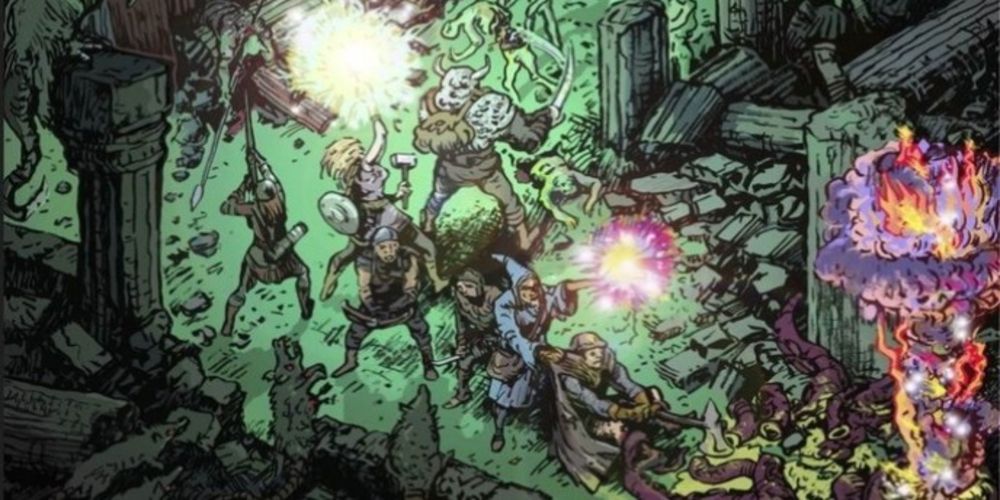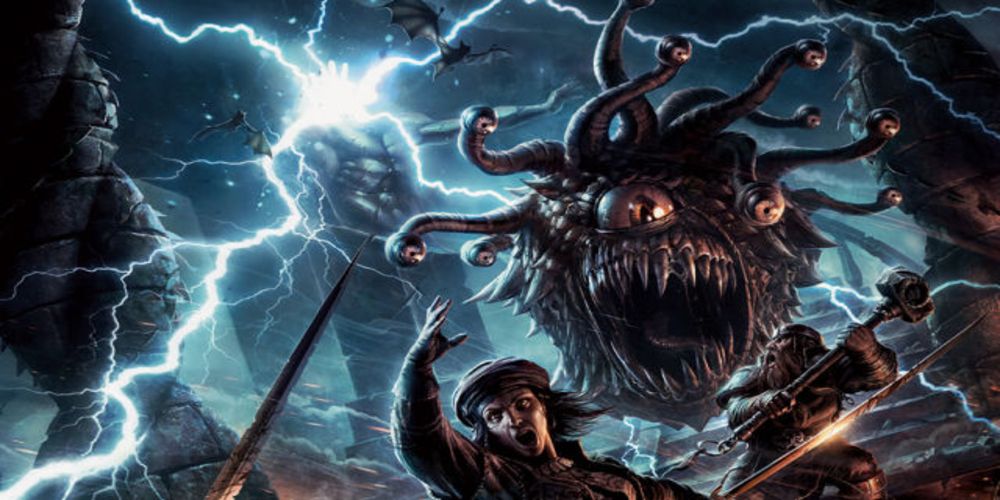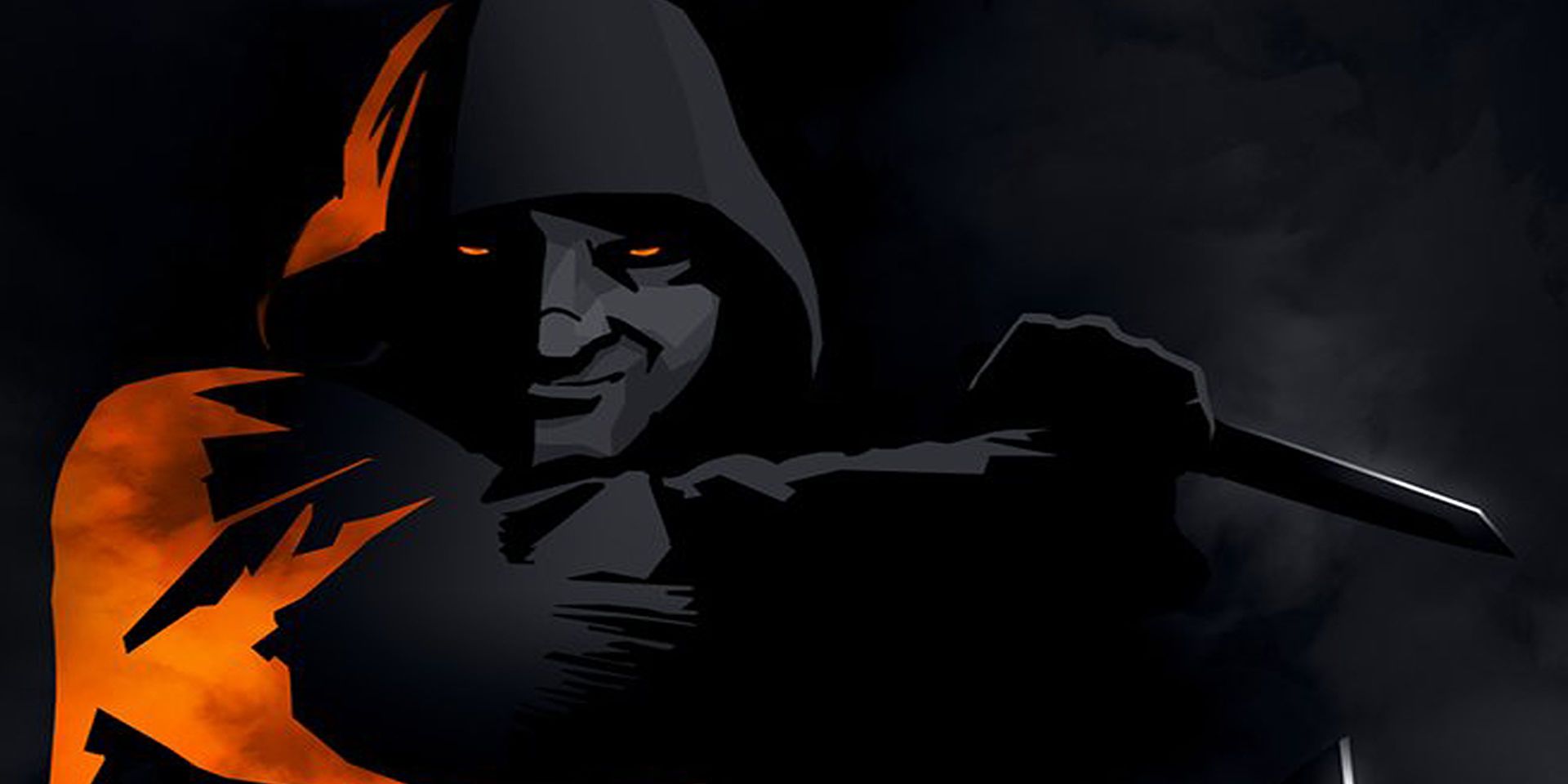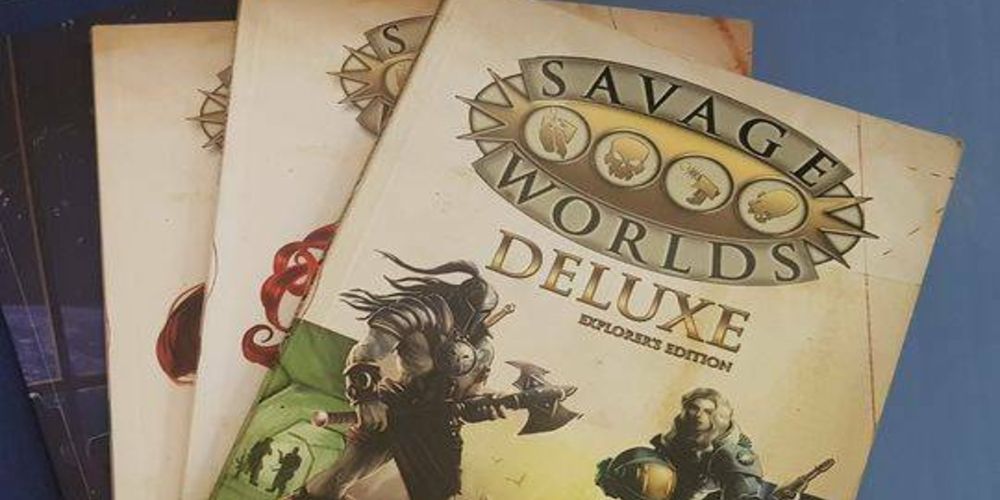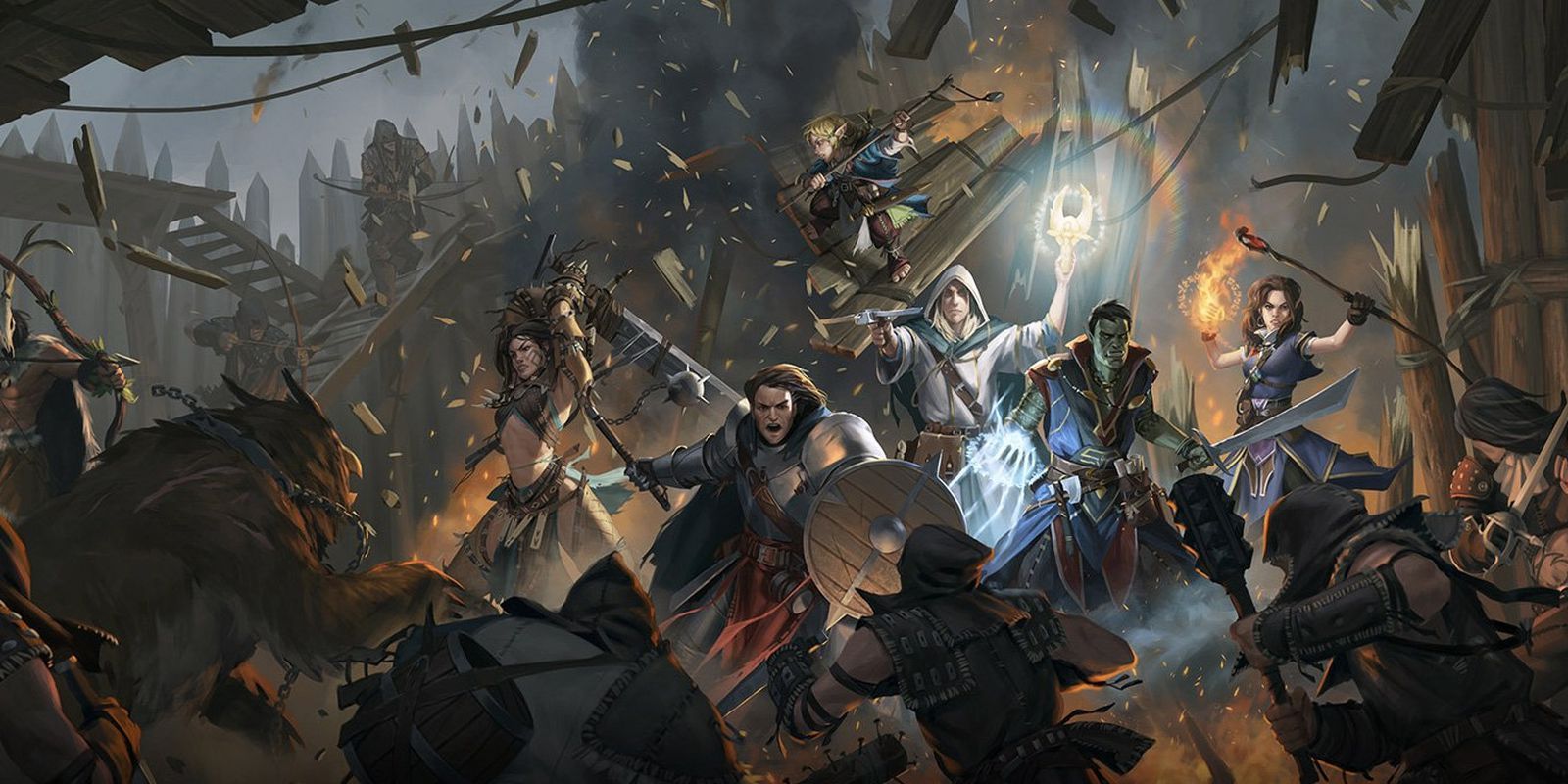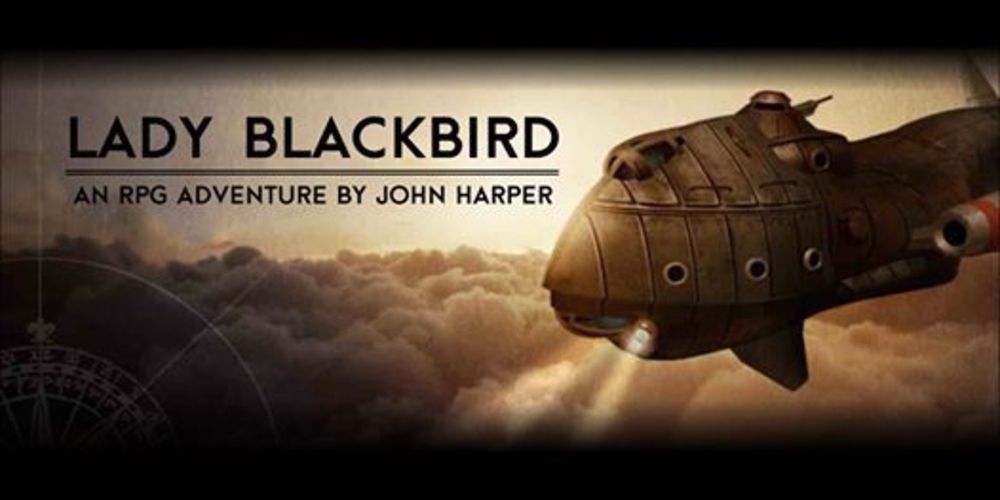Tabletop role-playing has gained a boost in popularity from cultural phenomena such as Stranger Things, but the hobby's thick rulebooks and potentially confusing gameplay mechanics mean that it can be a challenging pastime for new players to get into. The huge amount of tabletop RPG systems that can be found online and in stores are both a good and bad thing for new potential game masters.
Knowing which game to choose for a new group of players is key to running a fun, successful campaign. While it's true that some games are best reserved for more experienced players, there are also plenty of games that make for fantastic starting points. Whether players prefer fantasy or science-fiction, horror or humor, there's a tabletop RPG for any taste.
Edge of the Empire
Fantasy Flight Games actually publishes a few different "main" Star Wars RPG books, but Edge of the Empire is the most accessible. Focusing on explorers, smugglers, and bounty hunters instead of force-sensitive characters, Edge of the Empire doesn't have quite as many systems to understand as Force and Destiny or Age of Rebellion.
For new game masters, one of the most challenging aspects of running a tabletop RPG can be thinking of world-appropriate content on the fly. This won't be as much of a problem for potential players who are already Star Wars fans and familiar with the IP's most beloved races and worlds, which gives it a leg up on games in original settings. There's also a great beginner box that new players may want to check out to jump into a campaign more smoothly.
Apocalypse World
Few modern tabletop RPGs have been as influential in the genre as Vince Baker's Apocalypse World. The core gameplay system has been used as the foundation for dozens of great games, but the original is tough to beat. Apocalypse World strips away the complicated skills and abilities found in many other games and focuses on collaboration between the game master and players.
Because of how differently it plays from many classic role-playing games, previous experience as a game master can actually hurt in Apocalypse World. While game masters need to be able to think quickly on their feet and adapt to player input to run the game well, many players will find the straightforward dice and action systems easy to get into.
Dungeon World
Dungeon World is a Powered by the Apocalypse game, which means that it uses the narrative-heavy/stats-light system created for Apocalypse World. As the title implies, this game focuses on taking every sword-and-shield fantasy trope players know and balling them into an open sandbox that players define as they play.
The game's focus on narrative flexibility and collaboration between players and the game master means that there isn't as much prep work to do before sessions as there is in many other games. The way characters are handled also makes it a great game for groups with mixed experience levels. There's a lot of customization options for those that want to dive deeper into Dungeon World's possibilities, but it's also very possible to stick to the basics and have a complete character in minutes.
Dungeons & Dragons 5th Edition
Dungeons & Dragons is the most widely-known tabletop role-playing game in the world, which makes it an obvious choice for potential game masters—called Dungeon Masters in D&D. The game defined the playstyle for the genre's most popular and powerful classes and monsters, and it has decades of content and support.
The game is more rules-heavy and number-crunchy than some games, but that structure may be exactly what some new game masters want. Furthermore, there is a multitude of new player kits and pre-written campaigns available that break everything down in a simple, digestible way. These boxes and narrative kits are great for new players and game masters to learn the ropes with before they move on to more complicated content.
Blades in the Dark
Blades in the Dark is a game that's Powered by the Apocalypse, but it does more of its own thing than many other games running the same core system. The biggest selling point is the Blades in the Dark's unique setting; it takes inspiration from both steampunk and fantasy, blending both into a creepy, dark, and intensely atmospheric world. Blades in the Dark is a great choice for beginners with a knack for organization.
Threats and world events are tracked with a wheel system that can seem hard to keep track of, but the system also makes it easy to always have plot hooks and events to throw at players. Blades in the Dark also walks the line between structure and freedom nicely. The game world and its inhabitants are more established than in most Powered by the Apocalypse games, but there's still a lot of freedom for players and game masters to shape the game to their liking.
Savage Worlds
No matter how well-made or accessible a system is, new game masters are far more likely to stick with a game if they connect with the setting and subject matter. While players can probably find an RPG that meets the desires of most groups, Savage Worlds ensures that just about any popular fantasy universe can be brought to tabletop role-playing.
Instead of presenting players and game masters with a pre-built world to play in, Savage Worlds is a generic game system that can be used in a setting of the players' choice. If this flexibility seems too overwhelming, the game's publisher, Pinnacle, has released a number of campaign settings and settings books to help players flesh out the game world.
Numenera
Though many tabletop RPGs are set in the future, Numenera may be set the furthest forward. Taking place one billion years in the future, the game puts players into the shoes of the "Ninth World." In Numenera, eight cycles of civilization have advanced beyond what can be comprehended only to leave, be destroyed, or transcend the planet. Now, in the relative-young ninth cycle, players must navigate the bits and pieces of civilization left behind by previous cycles to ensure the survival of the world.
Numenera is a great game for new players for a number of reasons. Character creation is more narrative than in many other games, asking players to simply match up a verb, adjective, and noun. The game is also great for campaigns lasting only one gameplay session, which means that players can get a solid taste for how it works without committing to a long time investment.
Pathfinder
Pathfinder is a more mechanically daunting game than new game masters may want to start with, but it's been around for long enough that there is a huge amount of content and resources to help players jump in. One of the most useful resources is the beginner box; in this self-contained kit, game masters will find both a simplified version of the rules and a pre-written campaign for players to jump into.
This makes it easy for new players and game masters to learn the systems and settings in a controlled way. Furthermore, there's also a transition guide available that walks players through how to move from the beginner box to the full game.
Lady Blackbird
Tabletop RPG books are often big and beautiful, but they're also pretty expensive. While the cost may not be as prohibitive for players that already know they enjoy the hobby, new game masters may want something with a lower bar for entry. Lady Blackbird is completely free to download, which makes it a great option for groups that want to test the role-playing waters.
Character sheets are also pre-written, which means that players can focus on learning the flow of the game and how to utilize their character's strengths instead of worrying about how to spend points in character building. Also, Lady Blackbird's rulebook is only 16 pages. While role-playing rulebooks can frequently go on for 400 or more pages, this slim, to-the-point set of rules means that the tabletop game can be learned in a short amount of time.

